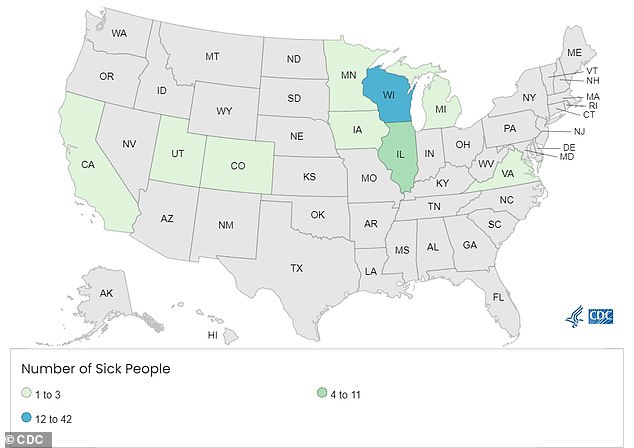FDA warns popular egg brand could cause ‘death’ after major recall
Several brands of recalled eggs have been given the most dangerous warning label, health officials announced.
Last month, the FDA recalled chicken eggs from Milo’s Poultry Farms and Tony’s Fresh Market due to a salmonella outbreak in nine states.
This week, the FDA gave the recall a “Class I” label, meaning there is a “reasonable probability” that exposure to the eggs “will cause serious adverse health effects or death.”
The contaminated eggs, distributed by Wisconsin-based Milo’s Poultry Farms, LLC, have sickened 65 people and hospitalized 24.
No deaths have been reported.
All contaminated eggs have been recalled, the FDA said

The recall affected products with a Best Buy date of October 12, 2024 or earlier
The CDC warned that this strain of salmonella, which affects about 1.3 million Americans per year, may be particularly difficult to treat because it is resistant to the common antibiotics nalidixic acid and ciprofloxacin (Cipro).
The eggs were recalled after salmonella was discovered in the chicken egg-laying shed and packaging facility in Wisconsin.
State officials revealed that 42 of the infections occurred in Wisconsin, where a large number of people said they became sick after eating eggs at restaurants.
In addition to Wisconsin, salmonella cases were reported in California, Colorado, Iowa, Michigan, Minnesota, Utah, Virginia and Illinois, where there were 11 documented infections, the second largest number.

State officials revealed that 42 of the infections occurred in Wisconsin, where a large number of people said they became sick after eating eggs at restaurants
All recalled eggs have a best before date of October 12, 2024 or earlier.
Salmonella is caused by eating food contaminated with animal feces. According to the CDC, it typically causes diarrhea, fever and stomach cramps that begin six hours to six days after the initial infection.
Most people recover within days, although the disease is responsible for more than 26,000 hospitalizations and 400 deaths each year.
